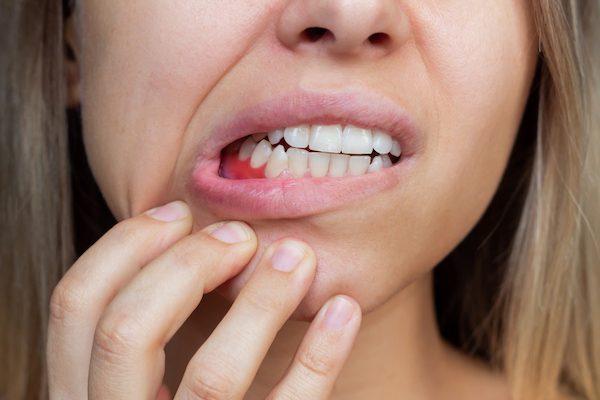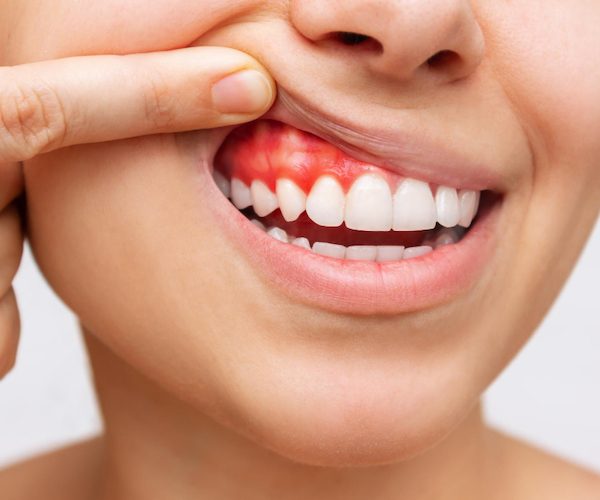Dental Abscess
Same-Day Dental Emergency Appointment Available in Cabramatta

Dental Abscess Cabramatta
A dental abscess is a painful infection that contains thick, pus-coloured fluid. Gum abscesses, sometimes referred to as periodontal abscesses and tooth abscesses, are the two types of dental abscesses (also known as periapical abscesses).
Unfortunately, only a few individuals are aware of this significant dental problem.
We provide same-day emergency appointments at Cabramatta Dental Care to help you get pain relief as soon as possible.
Common Causes of a Dental Abscess
An infection-related pus buildup in the mouth is known as a dental abscess. Pus is a protein-rich, whitish-yellow fluid composed of decomposing white blood cells.
Your dentist can successfully treat a tooth abscess. It happens a day or two after the infection starts. Once it manifests, no amount of first assistance can make it disappear.
If the infection is not treated, it could eventually travel through the bloodstream to the tooth’s root and then to the rest of the body.
The following factors may contribute to the infection causing the dental abscess:
- Gum disease
- Food stuck in your teeth
- Poor dental work
- Root canal complications
- Severe tooth decay

Symptoms of a Dental Abscess
In addition to the dental pus being visible, a dental abscess may also present with the following symptoms:
- The bitter taste on the tongue
- Enlarged neck glands
- Bad breath
- A general feeling of illness
- Pain in eating
- Redness and soreness of the gums
- Redness and soreness of the cheeks
- Tooth Sensitivity
- Swollen jaw
First Aid Steps
As noted, once a tooth abscess develops, it can only be treated by your dentist. Before seeing the dentist, the first aid measures below will assist you in controlling and minimising its effects.
- To rinse your mouth, use an antiseptic mouthwash. Use a saltwater solution instead (eight ounces of lukewarm water to one-half teaspoon salt). You can also gargle with peppermint tea.
- If you want to reduce discomfort, try clove oil or over-the-counter painkillers, but always be aware of their limitations.
- Aspirin should never be applied directly to the gums. Chemical burns could result from this.
- Go to your Cabramattadentist right away.

Treatment for a Dental Abscess
Identifying the source of the illness is critical in the therapy process. The tooth abscess can be treated by addressing the underlying cause; otherwise, it will remain.
Treatment options include:
- Antibiotic therapy
- Root canal treatment
- Tooth extraction
- Periodontal surgery
Preventing Dental Abscess
Preventing dental abscesses begins with reducing tooth decay/cavities. Take proper care of your teeth to avoid tooth decay.
Here are some pointers:
- Drink plenty of fluoridated water.
- Brush your teeth at least 2x a day using fluoride toothpaste and a soft-bristled toothbrush.
- Cleaning the gaps in between your teeth requires daily flossing.
- To prevent tooth decay, use fluoride- or antibacterial-containing mouthwash.
- Brushed bristles should be changed every 3 months or as soon as they start to wear or fray.
- Consume healthful foods and limit sugary and between-meal snacks.
- Schedule regular check-ups and professional cleanings with your dentist in Cabramatta
Dental Abscess Treatment in Cabramatta
If you have a dental abscess and wish to see your Cabramatta dentist immediately, call us and make an appointment right once.
At Cabramatta Dental Care, we take a gentle and meticulous approach to looking after our patients.
Visit your Cabramatta dentist today!
Same-Day Dental Emergency Appointment Available in Cabramatta
For a dental emergency in Cabramatta, contact (02) 9755 5300 or request an appointment online.
We are located at 47 Arthur St in Cabramatta.
FREQUENTLY ASKED QUESTIONS
Do dental abscesses go away on their own?
Dental abscesses don’t disappear by themselves. If you believe you have one, visit your Cabramatta dentist.
If unattended, they may expand to your jaw or areas of your head or neck.
Are dental abscesses dangerous?
Dental abscesses, when appropriately treated, rarely cause major or long-term complications.
On the other hand, a severe tooth abscess can create consequences, possibly even severe ones, if left untreated.
Are dental abscesses contagious?
No. Dental abscesses cannot be passed from one person to person.
